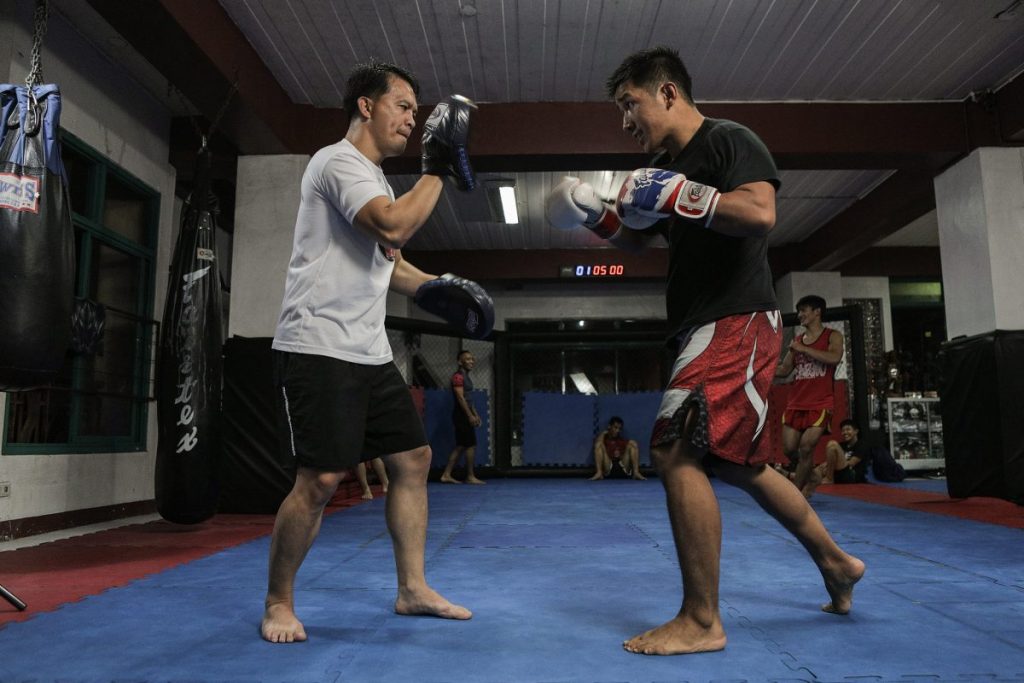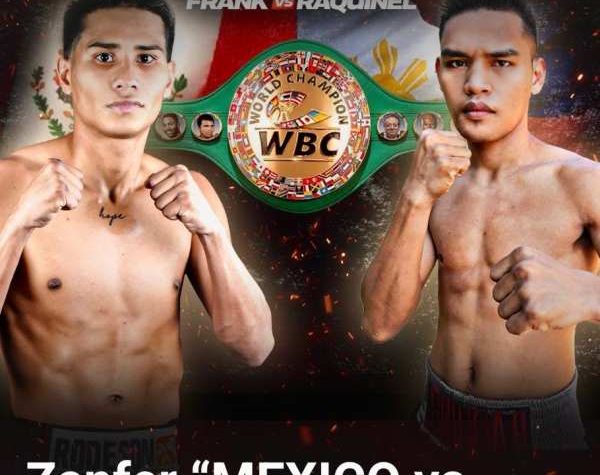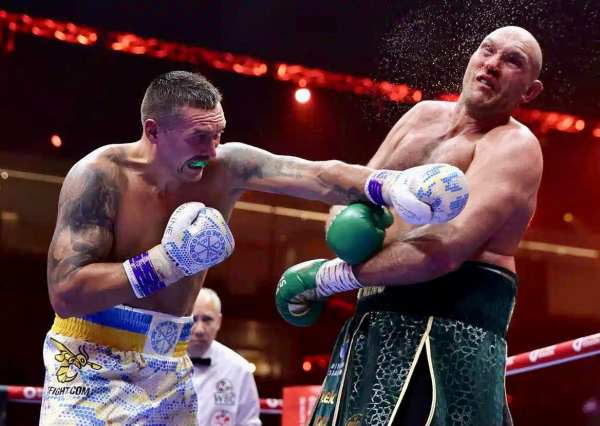
Mark Sangiao is building a dynasty in Baguio City.
The benevolent coach has produced a pair of title holders in ONE Championship, guided multiple Igorot warriors to SEA gold medals in wushu, and is turning athletic Filipino scholars at the University Of Cordilleras into promising MMA contenders.
Before he became the master, the innovative trainer had to experience life as a fighter for himself and that is exactly what he did, even though his mother never wanted him to do it.
Becoming A Martial Artist
When Sangiao first started training in martial arts to be a fighter, his dad did not mind so much. But his mother was a different story.
“At first, my mom did not want me to,” the 37-year-old recalls with a smile. “She cared about me, so she did not want me getting hurt, of course.”
Still, the self-motivated young athlete soldiered ahead in his martial arts journey, beginning with kickboxing in 1995. He transitioned to taekwondo in 1998, and made the varsity wushu squad at the Baguio Colleges Foundation, which was later renamed the University Of Cordilleras in 2003.
In the years to follow, he won a slew of national titles, joined the Philippine Wushu Team in 2001, and won a gold medal at the Southeast Asia Games that same year in Kuala Lumpur, Malaysia.
To supplement his competition training, he engaged in other physical activities.
“I loved sports since I was young,” he says. “I swam in the river, played basketball. I am an athletic guy, so it is not hard to cross-train.”
It was only natural for him to shift his combat sports focus to mixed martial arts. Debuting in 2003, he become a mainstay in a popular Filipino promotion, and fought at a few smaller shows too.
Over the next six years, “The Machine,” as he was called, amassed a respectable 7-2 record and was mostly flat-out dominant. He also opened the Team Lakay MMA gym in Baguio, and developed a team of mixed martial artists. However, a few months following a guillotine loss in November 2009, he hung up the eight-ounce gloves.
“I decide to to stop because there were so many fighters [at the gym] already in 2010. I could not manage the time to train and teach, and the competition was becoming tougher since we entered the international MMA scene,” he explains.
“It is hard. You have to train hard, two to three times a day. Plus a lot of fighters were already coming up, so I decided to stop and concentrate in producing and training these athletes.”

From Martial Artist To Coach
Sangiao was destined to become a coach and a teacher. While completing his Master’s degree at his alma mater, he taught at the school’s Criminology department in 2004, in addition to coaching the varsity wushu team.
His intention with Team Lakay was to further cultivate the talent of fellow wushu teammates, such as Eduard Folayang, and develop some of the best prospects in the region, many of whom came from the University of Cordilleras’s wushu program.
Although wushu equipped him with excellent striking and takedown skills, the team had to get comfortable on the mat, and then put all the pieces together. Team Lakay’s ground skills were put into question in the early going, but Sangiao and company have worked diligently on turning a perceived weakness into a strength.
That led the way to their success, right when the sport was gaining steam in Asia.
“Progress was gradual. It took teamwork,” Sangiao says. “Things developed slowly. Before, I was just doing it for my passion. I love martial arts, teaching, and fighting.
“I never, never foresaw that it would become like this. Now, we are dominating the national MMA scene in the Philippines. Then, along came the international promotions and the biggest promotion in Asia, ONE Championship.”
Team Lakay has showed wonderfully in ONE, as prominent member Honorio Banario won the inaugural ONE Featherweight World Champion in 2013, and Folayang recently dethroned Shinya Aoki for the ONE Lightweight World Championship this past November.
Those accomplishments have further justified Sangiao’s cause.
“When ONE Championship started,” he begins, “all of our fighters started slowly until we learned from those experiences that we needed to work on this, work on that. We had to be professional, and confidence came from that.”
Above all else, despite his own personal athletic accomplishments, he has also made a believer out of a certain lady.
“My mother did not want me to fight at first, but that changed when I started producing fighters. Now, my family, they are the ones sending their kids to me,” he chuckles. “They saw the effect of martial arts on me.”
From Coach To Father Figure
It was not Sangiao’s success and growing notoriety that converted his family, but rather his example of a healthy martial arts lifestyle. As both the head of one of Southeast Asia’s hottest stables and the head of the wushu program at his former university, the man now famously known as ‘Coach Mark’ has had a rewarding career.
Martial arts first gave him more elemental treasures, however.
“First, it helped with self-discipline,” he recounts. “A lot of the friends I had as a kid, now they drink a lot, they are fat, and they party. For me, I have to train to maintain my physique. I have to be strong and healthy, so I involved myself in sports, especially martial arts.
“My first fight, I did not expect how tiring it would be. You need extreme discipline to be a fighter, so at that time I realized the need to maintain discipline, because I loved this sport.”
The effect martial arts and competitive fighting had on Sangiao extends to his spiritual life, as well.
“It changed me to become more disciplined, made me mentally tough, and added confidence,” he admits. “But it also brings me closer to God, spiritually. When you are going into a fight, no one will help you except for God. So you have got to pray.”
Aside from health and faith, Sangiao values school. In fact, he sees athletics as a path for many of his students in Baguio to become university-educated. For the people of Baguio, education is important in order to better their lives, and martial arts scholarships soon became the best way to pay the way through college.
Mentoring students and guiding their fight careers is heavy work. The role as a second father to many of his pupils is one that Sangiao relishes, however. Talk to any Team Lakay fighter and they are more than willing to share their admiration for Sangiao, often gushing about his knowledge and compassion. He is very active all of his fighter’s lives, and it shows.
“I am very happy seeing that they are succeeding in their fighting career and in their studies,” he says of his students. “That is why maybe they treat me as their second father — I am also concerned with their futures. That is what I love. I love what I am doing.”









More News
ONE Championship YIELDS NEW WINNERS AT UNBREAKABLE III
One Championship’s Singapore Yields Action-Packed Collision
ONE Championship 4 World Title Fights Announced For ONE INSIDE THE MATRIX On 30 October